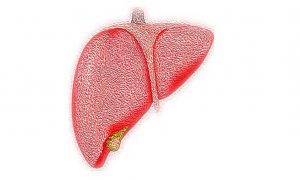Due to air pollution or smog, people may develop common eye conditions like watery eyes, itchy eyes or burning sensation. Here are important tips to remember.
Do you wake up with burning sensation in eyes or red and watery eyes these days? High pollution levels in Delhi-NCR, are affecting almost every aspect of our health and that includes ocular health. When eye strain meets pollution, visual issues are sure to worsen. Exposure to environmental pollutants such as carbon monoxide, nitrogen dioxide and dust particles are making people prone to red, watery eyes and various eye allergies. It is important to support your eye health with protective eyewear and also nutritious and hydrating food high in fibre, vitamins and other essential nutrients. Drinking plenty of water will also help deal with the harmful effects of pollution.
Read More: 7 Nutrient-Rich Foods You Need for A Stronger Immunity Amid Polluted Weather
“Research increasingly points to air pollution not just as an irritant, but as a serious antagonist to ocular health. The cornea and conjunctiva are directly exposed to the environment, making them particularly vulnerable to the fine and ultrafine particles that compose urban smog. These particles, especially PM2.5, are small enough to infiltrate the ocular surface, potentially causing oxidative stress and inflammation that can lead to conditions like dry eye syndrome, conjunctivitis, and even disruption of the tear film,” says Dr Shantanu Mukherji, Senior Consultant, Sharp Sight Eye Hospitals.
“Exposure to extreme polluted smog can affect our eyes, leading to allergies and damage. Poor quality of air comprises detrimental gases like carbon monoxide, nitrogen dioxide and coarse dust particles which can make people prone to red and watery eyes and various eye allergies. Due to air pollution/smog, people may develop the most common eye conditions that include watery eyes, swelling, itching sensation, burning sensation, discomfort, sore eyes, redness, dry eyes (dryness, gritty feeling, foreign body in the eye) and eye allergy (itching, redness, discharge, eyelid swelling, blurring of vision and increased risk of infection etc.),” says Dr. Nikhil Seth, Senior Consultant, Ophthalmology, Marengo Asia Hospitals Faridabad
Read More: Isabgol To Celery Water, Easy Home Remedies For Constipation In Winter
“The insidious nature of air pollution can make its impact on eye health both underestimated and profound. Particulate matter, especially fine particles like PM2.5 and nitrogen dioxide prevalent in urban pollution, can lead to an array of ocular irritations — from the simple stinging sensation to the complex chemical burns on the ocular surface. These pollutants are not merely surface irritants but can trigger a cascade of inflammatory responses that damage the eyes’ surface and internal structures over time. We’re now understanding that such inflammation can set the stage for more serious disorders, potentially accelerating the progression of cataracts and causing retinal damage akin to the effects seen in macular degeneration,” says Dr. Bhupesh Singh, Senior Ophthalmologist, Bharti Eye Hospitals.
How long-term exposure of pollutants affects eye health
“Chronic exposure to air pollutants can exacerbate the risk of more severe ocular pathologies, such as uveitis or retinal diseases, and there’s emerging evidence that it may contribute to the development of cataracts and possibly worsen age-related macular degeneration,” says Dr Mukherji.
Read More: National Cancer Awareness Day: 5 Warning Signs Of Growing Tumour In People Over 50
How to protect your eyes from adverse effects of pollution
“During pollution-heavy seasons, it is crucial to take proactive steps: wearing glasses or goggles creates a barrier against direct exposure, and high-quality air purifiers can markedly decrease indoor pollution levels. Regular eye care, including cleansing with preservative-free preparations and maintaining a diet rich in vitamins and minerals essential for eye health, remains vital. It is important to be vigilant during periods of high pollution and include more frequent check-ups to catch and address the subtle onset of pollution-induced eye health decline. This holistic approach to eye care is key to mitigating the detrimental effects of air pollution,” says Dr Singh.
As we enter seasons of heightened pollution, it’s imperative to adopt protective measures. Dr Sethi shares some tips:
- Wearing close-fitting eyewear can provide a physical shield against particulates, while indoor air filters help reduce exposure.
- Using artificial tears or lubricating eye drops can mitigate irritation and assist in flushing out foreign matter.
- Nutritional support for the eyes, including antioxidants like lutein and zeaxanthin, and omega-3 fatty acids, can help counteract the impact of oxidative stress.
- Regular eye examinations become even more critical during these periods to ensure any adverse effects are caught and treated early, safeguarding long-term vision and eye health.
Dr Seth shares tips to follow to lower the risk of infections:
- Avoid exposure to harmful pollutants. Stay indoors, especially in the early hours of the morning as the pollution levels are at their peak at this time. In case you have to venture out, so make sure you wear protective eyeglasses which will help reduce your exposure to the pollution causing agents.
- Wash your hands frequently with soap and running water and avoid touching your eyes
- Keep yourself hydrated by drinking plenty of water as it will aid in adequate tear formation. It is crucial when external factors such as smog raise your chances of dry eyes and eye irritation.
- Eat a healthy diet high in Omega 3 fatty acid including lots of green leafy vegetables, carrots, spinach, almonds, walnuts, berries and fish which are extremely good for the eyes.
- Wear sunglasses when outdoors.
- Refrain from rubbing your eyes.
- Use eye drops to lubricate your eyes. However, it’s important to get your eyes examined before using any eye drops.
- Also cut down the excessive use of screen devices, including mobile phones and laptops. If essential, ensure adequate periods of rest to avoid eye fatigue, dry eyes, and computer vision syndrome.
In case the irritation persists, consult ophthalmologist for an evaluation.
“It is advisable to avoid using contact lenses if there is any redness or discomfort in the eye. Wearing protective glasses over contact lenses may be useful when the particulate matter index is at an alarming level. In case you wear contact lenses and experience any discomfort, then take them off and use lubricating eye drops as an emergency measure. You must seek an appointment with your ophthalmologist. If you are willing to wear the same lenses again, then make sure these lenses have been appropriately cleaned and have no scratches. Say no to eye makeup if eyes are feeling uncomfortable. Kajal and mascara often worsen eye allergies and may cause infections also. You must also remove all eye makeup before going to bed. Use a specialized eye makeup remover to mitigate the ill effects of the chemicals found in makeup products,” concludes Dr Seth.



































